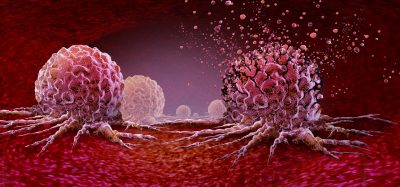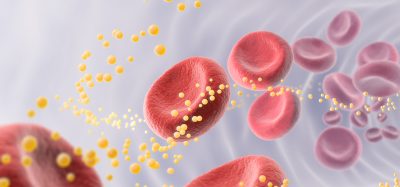Ageing and cancer-causing gene: researchers uncover a link
Posted: 15 August 2023 | Taylor Mixides (Drug Target Review) | No comments yet
Researchers from UPMC Children’s Hospital of Pittsburgh and the University of Pittsburgh School of Medicine have made a discovery linking the notorious cancer-causing gene, Myc, to the process of ageing.


In a recent peer-reviewed study published in Cell Reports, the team, led by Dr Edward V. Prochownik, delved into the dual role of the Myc gene in both cancer development and ageing. The findings highlight the gene’s complex functions, opening up new avenues for cancer therapy and raising important considerations for future drug development.
Myc: a crucial cancer driver with a mysterious side
Myc, a gene widely recognised for its pivotal role in driving cancer progression in both mice and humans, has posed a significant challenge to researchers due to its essential functions in normal growth and development. The gene is estimated to be involved in 20 percent of all human cancers.1 Attempts to study the gene have been hindered by the fact that embryonic mice lacking Myc do not survive beyond birth. To circumvent this limitation, Dr Prochownik’s team decided to deactivate the gene in mice when they reached approximately one month old, allowing for a more extended period of study.
Unexpected findings: Myc and accelerated ageing
The researchers observed an intriguing correlation between the absence of Myc and accelerated ageing in mice. The knockout mice exhibited various aging-related characteristics, such as graying coats, fur loss, decreased coordination, reduced activity levels, and metabolic irregularities. Paradoxically, despite ageing more rapidly, these mice lived up to 20 percent longer than their counterparts with active Myc.
The link between Myc, ageing, and cancer
The enigmatic discovery began to unravel when the team conducted autopsies on mice that had naturally died. Surprisingly, the rate of cancer in the Myc knockout mice was significantly lower than in normal mice. This led the researchers to speculate that the absence of Myc hindered the development of tumours, given its crucial role in cancer formation.
Further evidence supporting this theory emerged from the observation that the few tumours that did occur in the knockout mice had reactivated the Myc gene, suggesting that tumours might originate from a small population of cells that evaded Myc inactivation from the beginning.
Implications for human ageing
To better understand the implications of these findings for human ageing, the researchers analysed thousands of tissues from both young and old individuals, as well as mice. In both species, ageing was accompanied by a gradual decline in Myc expression. However, the reduction in Myc levels was not sufficient to prevent the onset of various cancers.
Dr Prochownik speculates that the different rates of aging among individuals could be attributed, in part, to varying levels of Myc expression. Those with naturally lower levels of Myc might experience more rapid ageing compared to those with higher levels.
Cautions for cancer drug development
As Myc dysregulation is associated with the development of numerous childhood and adult cancers, pharmaceutical companies and researchers have been exploring Myc-targeting drugs to combat tumor growth. Dr Prochownik’s study raises an important cautionary note, suggesting that inhibiting Myc might come with unexpected side effects, such as premature ageing.
The collaborative research effort by UPMC and Pitt scientists has unveiled a remarkable link between the cancer-driving gene, Myc, and the ageing process. This breakthrough has significant implications for cancer therapy development, urging researchers to approach Myc-targeting drugs with caution to avoid potential consequences on the ageing process. As the medical community continues to unravel the complexities of Myc, this study opens up new avenues for understanding both cancer and ageing, bringing hope for more effective and safer treatments in the future.
References
- Chi V. Dang et al. The C-myc target gene network [Internet]. Academic Press; 2006 [cited 2023 Jul 27]. Available from: https://www.sciencedirect.com/science/article/abs/pii/S1044579X06000654
Related topics
Gene Therapy, Immuno-oncology, Immuno-oncology therapeutics, Targets
Related conditions
Cancer
Related organisations
University of Pittsburgh School of Medicine, UPMC Children's Hospital of Pittsburgh








